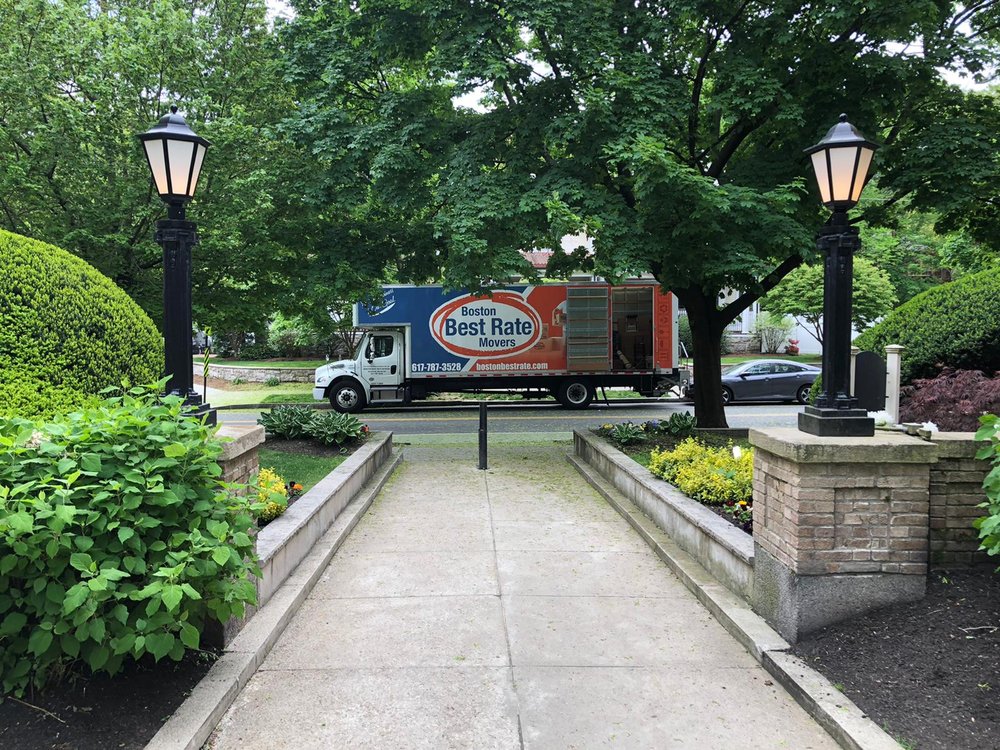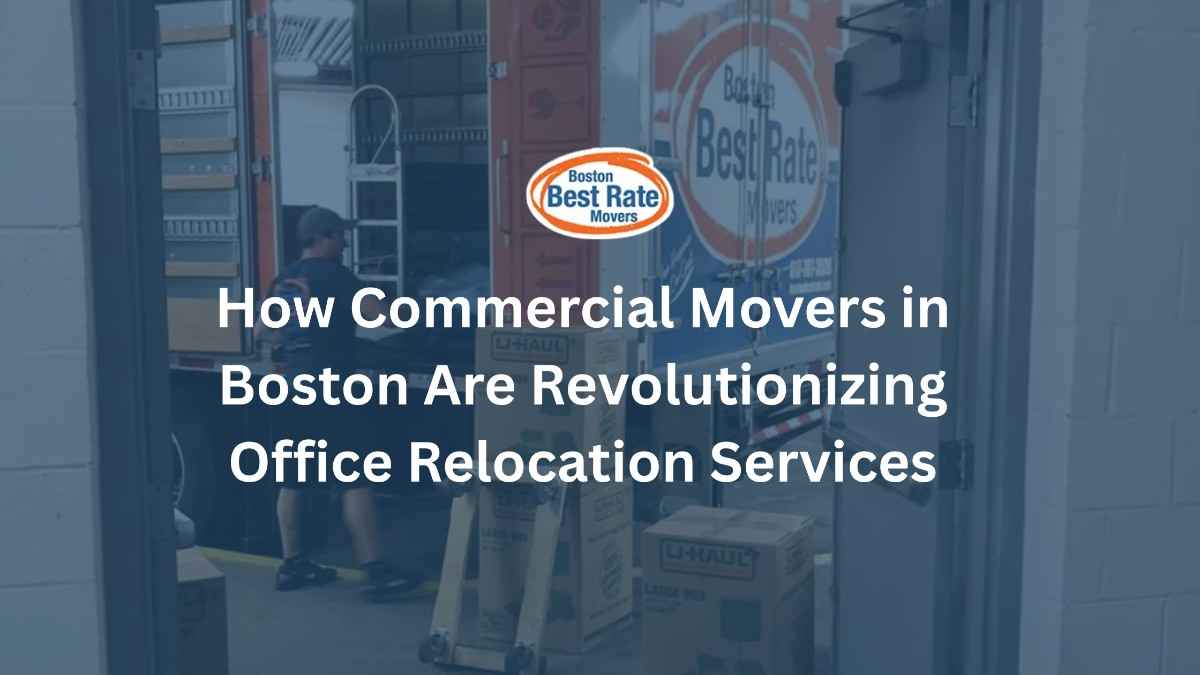Moving can be both exciting and stressful. Moving all your belongings can be overwhelming, whether relocating to a new home, expanding your business, or embarking on a new adventure in a different country. That's where professional movers come to the rescue.
Hiring experienced movers can save you time, effort, and potential damage to your belongings during the transition. However, before you make a decision, it's essential to understand how much movers cost and what factors influence a movers costs.
Factors Influencing Moving Costs

Types of moving services
Local moves
Local moves refer to relocations within the same city or a short distance away. The cost of local moves is typically based on an hourly rate, which includes loading, transportation, and unloading. Additional factors include:
- The number of movers required.
- The size of the truck that is needed.
- Any other services requested.
Long-distance moves
Moving across state lines or to a distant location falls under long-distance moves. The cost for long-distance moves is usually calculated based on the distance traveled or the weight of your belongings.
The longer the distance, the more you can expect to pay. Some moving companies also factor in the time of year, fuel prices, and the size of the moving crew when calculating the cost of long-distance moves.
International moves
You'll deal with international movers if you're relocating to another country. Customs fees, shipping expenses, and other international regulations can influence the costs here.
International moves involve complex logistics and often require freight shipping or air transport. Working with a reputable international moving company with experience handling such relocations is essential.
Residential moves
Whether you're moving from an apartment or a house, residential moves have unique considerations that can affect the overall moving costs. The size of your home, the number of rooms, and the amount of belongings will impact the move cost. Additionally, the presence of stairs, narrow hallways, or elevators can add to the complexity of the move and may result in higher prices.
Commercial moves
Relocating a business requires precision and efficiency. Commercial moves involve moving office equipment, furniture, and other assets, and the costs will depend on the scale and complexity of the move.
The office space size, the number of employees, and the nature of the business will all influence the overall moving costs. Working with commercial movers with experience handling office relocations is crucial to ensure a smooth transition.
Specialty moves
Some items, such as pianos, antiques, and artwork, require special handling and care during a move. Specialty moves involve additional costs due to the unique requirements of these valuable possessions. Movers with expertise in handling specialty items will use specialized equipment and packing techniques to transport these belongings safely.
Seasonal and peak times
The timing of your move can also impact the moving cost. Moving during peak seasons or busy times, such as summer when many families relocate, may result in higher costs due to increased demand for moving services. Consider scheduling your move during off-peak seasons to save on costs.
Accessibility and distance from the truck
The accessibility of your home or office and the distance between the truck and the entrance can influence the labor charges. If the moving crew has to carry items over long distances or up and down flights of stairs, it may take longer and result in higher costs. Ensuring easy access for the moving truck can help streamline the moving process.
Flight of stairs and elevator usage
If your old or new place has stairs or requires the use of elevators, it may affect the overall cost due to the additional effort involved. Some moving companies may charge a flight charge for each flight of stairs or an elevator fee if an elevator is required to move items to the upper floors.
Packing complexity and fragility
The complexity of packing and the fragility of your belongings can impact the time and effort required, affecting the final cost. Delicate and valuable items may require special care and packing materials, increasing the overall moving expenses.
Specialty items handling
Specialty items, like pianos, pool tables, or delicate antiques, require extra care and may incur additional costs for safe transport. Moving companies with expertise in handling specialty items will have the necessary equipment and experience to ensure these belongings reach their destination without damage.
Cost Breakdown of Moving Services

Base moving charges
The base moving charges are the core fees that moving companies charge for their services. This includes the moving crew's labor, the moving truck's use, and basic moving supplies.
For local moves, the base charges are usually calculated based on an hourly rate, while for long-distance moving, it may be a flat fee or based on the weight of your belongings.
Packing supplies and services
If you prefer to have professional packers handle your belongings, this service will come at an additional cost. Packing supplies are also considered in the overall moving expenses.
The cost of packing services may vary depending on the number of items that need to be packed, the fragility of the items, and the time required to complete the packing process.
Transportation fees
The distance between your old and new location is vital to transportation fees. For long-distance moves, transportation costs may be calculated based on the distance traveled or the weight of your items.
Moving companies may charge extra fuel or toll fees depending on the route taken. Discussing transportation fees with the moving company and understanding how they are calculated is essential.
Additional services
Apart from the basic moving services, there are optional add-ons that you can choose from, such as furniture disassembly and reassembly, appliance servicing, junk removal, and more. These extras will incur additional costs. Some moving companies offer package deals that include these services, which can be cost-effective if you require multiple add-ons.
Insurance and liability coverage
Protecting your belongings during a move is crucial. Movers offer different levels of insurance coverage, which can affect the overall cost of your move. The two primary types of coverage are "Released Value Protection" and "Full Value Protection."
Released Value Protection is the basic level of coverage provided by law, which offers minimal reimbursement per pound for damaged or lost items. Full Value Protection provides more comprehensive coverage, where the movers are liable for the replacement value of lost or damaged items. However, it comes at a higher cost.
Estimating Moving Costs

In-home surveys and quotes
Consider scheduling an in-home survey with the moving company to get an accurate estimate for your move. A representative will visit your home, assess your belongings, and provide a detailed quote based on the volume of items, packing requirements, and other specific details of your move. In-home surveys are especially useful for more significant moves or moves with unique circumstances.
Online moving cost calculators
If you prefer a quick estimate, many moving companies offer online moving cost calculators that can give you a rough idea of the expenses based on the information you provide, such as the size of your home, the distance of the move, and any additional services required. While online calculators are convenient, remember that they are not as accurate as in-home surveys and may not consider your move's specific details.
Obtaining multiple quotes
To ensure you get the best deal, obtaining quotes from several moving companies is wise. Contact multiple companies and provide them with the same information about your move to get comparable quotes. It's essential to consider both the cost and the services each company offers to make an informed decision.
Average Cost by Move Type
Local moves: Cost per hour or flat rate
For local moves, moving companies usually charge an hourly rate, which can vary based on the size of the crew and the equipment used. The number of hours required will depend on factors such as the distance between locations, the accessibility of the properties, and the volume of items being moved. Some moving companies may offer flat rates for local moves within a certain distance.
Long-distance moves: Cost per mile or weight
Long-distance moves are often charged based on the distance traveled or the weight of your belongings. The cost per mile will depend on the moving company's rate and the distance to your new location. For long-distance moves based on weight, the moving company weighs the truck before and after loading to determine the weight of your belongings.
International moves: Customs and shipping expenses
Moving internationally involves additional costs, including customs fees, shipping expenses, and destination charges. Customs regulations, import taxes, and duties can vary from country to country, so it's essential to research and plan accordingly. Shipping methods, such as sea freight or air freight, also impact the overall cost of an international move.
Cost-Saving Tips and Strategies
DIY packing vs. professional packing
Deciding to pack your belongings or hiring movers can significantly affect your moving expenses. Packing yourself can save money but requires time, effort, and suitable packing materials. On the other hand, professional packers can efficiently and safely pack your belongings, but this will come at an additional cost.
Downsizing and decluttering
Reducing the number of items you need to move can save money and make the moving process more manageable. Take the time to declutter, sell, or donate items you no longer need. This will reduce moving costs and simplify the packing and unpacking process.
Time flexibility for discounts
Some moving companies offer discounts for flexible moving dates, which can help you save money. If you have the flexibility to choose your moving date, inquire about any available discounts for off-peak times.
Sharing moving trucks
If you're moving a small load or single item, consider sharing a moving truck with someone else to reduce transportation costs. Some moving companies offer shared or consolidated moving services, combining shipments from multiple customers to optimize truck space and reduce expenses.
Negotiating with moving companies
Don't hesitate to negotiate with moving companies to get the best possible deal for your move. While some moving companies may have fixed rates, others may be willing to offer discounts or additional services to secure your business.
Understanding Moving Insurance

Released value protection
This is the basic level of coverage offered by movers, which provides minimal protection for your belongings at no additional cost. Under released value protection, the moving company assumes liability for your items based on their weight rather than their actual value.
Full value protection
You can opt for full-value protection for comprehensive coverage, but this will come at a higher price. Full value protection ensures the moving company is liable for the replacement value of lost or damaged items during the move.
Third-party insurance options
You can explore third-party insurance options for additional coverage beyond what the moving company offers. Third-party insurers provide specialized moving insurance that may offer more extensive coverage for high-value or unique items.
Hidden Moving Costs to Watch Out For

Fuel surcharges and taxes
As they can add up, keep an eye out for hidden fees, such as fuel surcharges and taxes. Some movers may charge a fuel surcharge to compensate for fluctuations in fuel prices.
Storage fees
Storage fees should be factored into your moving budget if you need to temporarily store your belongings. Storage costs may vary depending on the size of the storage unit or moving container, storage duration, and the storage facility's location.
Additional service charges
Be aware of any additional service charges that may apply, such as waiting time or handling bulky items. Before the move, clarify with the moving company what other services they offer and the associated costs.
Rescheduling or cancellation fees
Changing your moving date or canceling the move may lead to extra charges. Check the moving company's policies regarding rescheduling and cancellation fees to avoid any surprises.
Choosing the Right Moving Company

Research and read reviews
Conduct thorough research on moving companies and read reviews to gauge their reputation and reliability. Online testimonials and reviews provide valuable insights into the quality of their services.
Verify credentials and licenses
Ensure the company is licensed and insured to handle your move. Verify their credentials with the relevant authorities and check if they are a member of reputable moving associations or organizations.
Get recommendations
Inquire with family, friends, or colleagues for recommendations on reputable moving companies. Personal recommendations can be more trustworthy and provide a good starting point in your search for the right movers.
Request references
Feel free to ask the moving company for references from previous customers. Speaking with past customers can give you a better understanding of their experience with the moving company and the quality of their services.
Stress-Free Moving with Affordable Movers
Ready to make your move smooth, efficient, and cost-effective? Don't let the stress of relocation weigh you down! Request a quote and explore the comprehensive moving services tailored to your needs. Say goodbye to moving worries and hello to a seamless journey to your new destination with professional movers.



.jpg)



